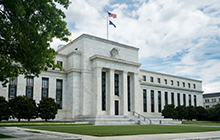 On June 3, 2021, the Second Circuit ruled that the New York State Department of Financial Services (DFS) lacked legal standing to challenge the Office of the Comptroller of the Currency’s (OCC’s) fintech charter program. The Second Circuit concluded that DFS lacked Article III standing because it failed to allege that the OCC’s decision caused it to suffer an actual or imminent injury in fact, and that DFS’s claims were constitutionally unripe for substantially the same reason. It reversed the district court’s judgment and remanded the case to the district court with instructions to enter a judgment of dismissal without prejudice. Lacewell v. Office of the Comptroller, No. 19-4271, 2021 WL 2232109 (2d Cir. June 3, 2021).
On June 3, 2021, the Second Circuit ruled that the New York State Department of Financial Services (DFS) lacked legal standing to challenge the Office of the Comptroller of the Currency’s (OCC’s) fintech charter program. The Second Circuit concluded that DFS lacked Article III standing because it failed to allege that the OCC’s decision caused it to suffer an actual or imminent injury in fact, and that DFS’s claims were constitutionally unripe for substantially the same reason. It reversed the district court’s judgment and remanded the case to the district court with instructions to enter a judgment of dismissal without prejudice. Lacewell v. Office of the Comptroller, No. 19-4271, 2021 WL 2232109 (2d Cir. June 3, 2021).
DFS brought the lawsuit against the OCC in September 2018, challenging the OCC’s decision to begin accepting applications for special-purpose national bank (SPNB) charters from fintechs, including fintechs that do not accept deposits, engaged in the “business of banking” as that term is used in the National Bank Act (NBA). DFS argued, in relevant part, that the OCC’s decision to accept such applications exceeded its statutory authority because non-depository companies are not engaged in the “business of banking.” The district court held that DFS had standing to file its lawsuit, and that the OCC exceeded its authority under the NBA because the term “business of banking” requires that only depository institutions are eligible to receive national bank charters.
The Second Circuit reversed the district court’s decision and concluded that DFS lacked Article III standing because it had not suffered any actual injury. DFS argued on appeal that there was a substantial risk that the OCC’s decision would enable non-depository fintechs with SPNB charters to escape enforcement by claiming federal preemption, thereby causing regulatory disruption and harming the State of New York. The Second Circuit rejected that argument, holding that DFS’s asserted risk of regulatory injury was too speculative to meet the requirements of Article III. Additionally, DFS argued that the OCC’s decision would cause it to lose revenue acquired through annual assessments levied upon institutions it regulates. The Second Circuit also rejected this argument, holding that, “[a]t least until a non-depository fintech that DFS currently regulates—or would otherwise regulate—decides to apply for an SPNB charter, this alleged assessment loss will remain purely ‘conjectural or hypothetical,’ rather than ‘imminent’ as the Constitution requires.” Finally, the Second Circuit held that DFS’s Administrative Procedure Act claims were neither constitutionally nor prudentially ripe for judicial review because the OCC has not yet received or granted applications for SPNB charters from non-depository fintechs.
In light of its determination that DFS lacked Article III standing and DFS’s claims were not constitutionally ripe, the Second Circuit “lack[ed] jurisdiction to decide the remaining issues on appeal.” The Second Circuit thus did not reach the merits of whether the “business of banking” as used in the NBA unambiguously requires the receipt of deposits; instead, the Second Circuit “express[ed] no view” on that portion of the district court’s holding.
